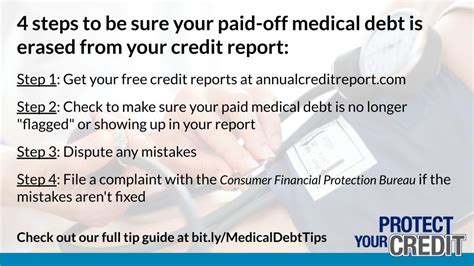The announcement to propose banning medical debt from credit reports in the US is being praised by many as a significant step towards addressing the broader issue of medical bankruptcy. Medical debt is unlike any other kind of debt; it often arises from circumstances beyond an individual’s control and can cripple financial stability. This proposal brings much-needed relief to individuals already plagued by a flawed healthcare system and sheds light on deeper systemic issues that require urgent attention.
Medical debt has been a persistent issue for many Americans, often leading to financial ruin and a cascade of other debts. It’s not uncommon for someone to fall behind on mortgage payments or credit card bills after being strapped with unforeseen medical expenses. As user ‘swatcoder’ aptly noted, there is a fundamental lack of transparency in medical billing. Patients often do not know the costs they will incur until they receive the bill, which can be months later and already too late to manage. This unpredictability adds an additional layer of stress and makes it difficult for anyone to plan their finances effectively.
One powerful argument made against the inclusion of medical debt in credit scores is that it does not accurately reflect a person’s financial behavior or creditworthiness. Medical emergencies and unforeseen health issues do not represent poor financial decisions. For instance, ‘JumpCrisscross’ highlighted that many consumers with medical debt otherwise maintain good financial habits. A significant percentage, around 50%, only have medical debt and no other indications of delinquency. It suggests that medical debt should not hamper one’s ability to obtain future credit, especially when the occurrence of such debt is distressingly common and often unavoidable.
However, the backlash against this proposal stems from a fear that obscuring this debt might lead to unassessed financial risks for lenders. User ‘blackeyeblitzar’ expressed concern that without knowledge of medical debt, lenders might extend credit to individuals already overwhelmed by financial responsibilities, which could increase default rates and ultimately impact the lending market. While it’s a valid concern, it is essential to balance consumer protection with the needs of the financial sector. The appropriate regulatory adjustments, such as limiting the ways in which medical debt can impact an individual’s credit score, could address these fears without negating the beneficial impacts on consumers.
One salient point made by commentators is the essential nature of broader healthcare reform. User ‘noobermin’ argued that simply adjusting credit reporting rules for medical debt does not tackle the underlying issue of exorbitant healthcare costs. Without comprehensive healthcare reform, any policy change is at best a band-aid solution. Transparency in medical costs, as suggested by ‘JumpCrisscross,’ whereby hospitals must provide a quote or cost estimate before proceeding with treatments, could mitigate the problem and prevent insurmountable bills from occurring in the first place.
Another critical aspect discussed is the need for educational reforms regarding student loans, paralleling the ongoing debate about medical debt. While the policies around medical debt are being scrutinized, reforms in the student loan sector are equally pressing to prevent future generations from falling into the debt trap. ‘frognumber’ correctly pointed out that allowing student loans to be discharged through bankruptcy could realign financial incentives and reduce the burden on young adults entering the workforce.
Ultimately, the proposed ban on medical debt from credit reports is a positive move in the right direction. However, it must be one part of a multifaceted approach to healthcare reform. Comprehensive policy changes that address underlying cost structures and provide transparency in billing practices are vital. Moreover, fostering a proactive stance towards consumer education and ensuring supportive legislation around healthcare costs will be crucial in alleviating the financial burdens faced by countless Americans. Addressing these issues holistically will lead to a more equitable and sustainable financial future for all.


Leave a Reply